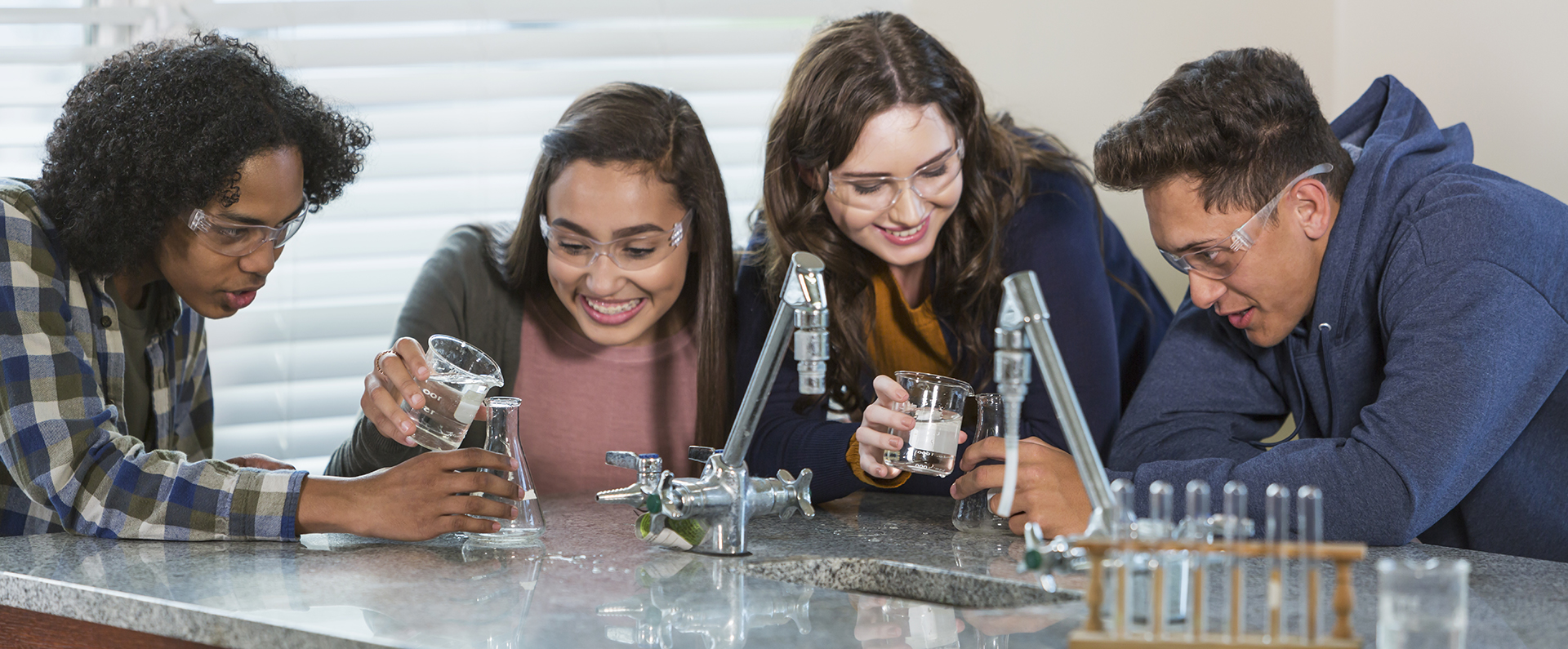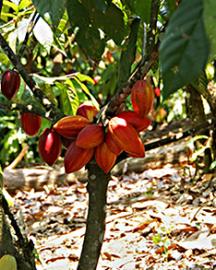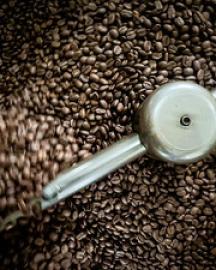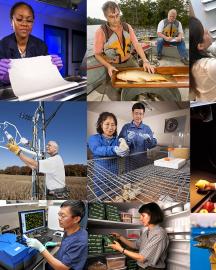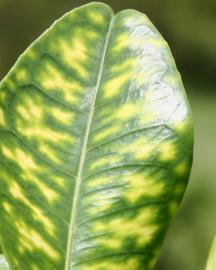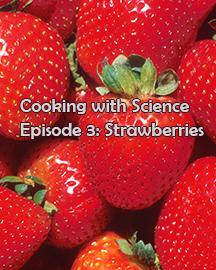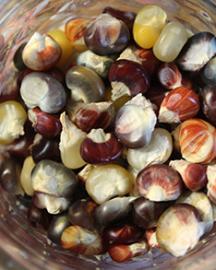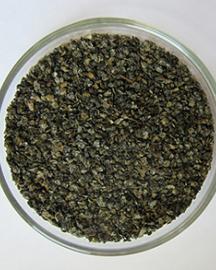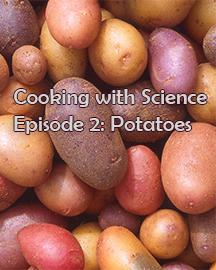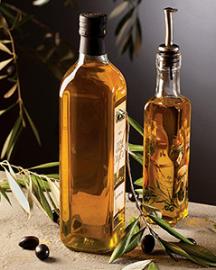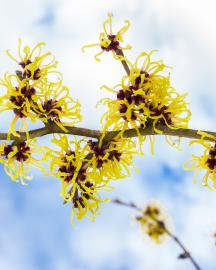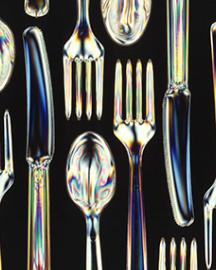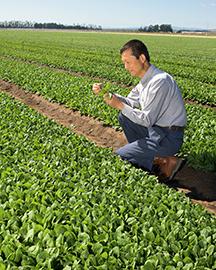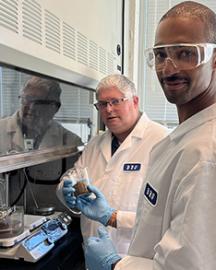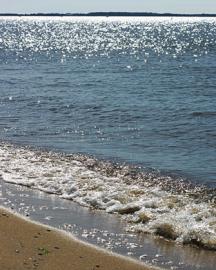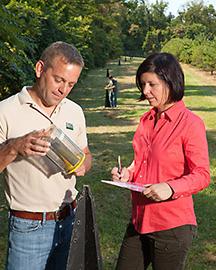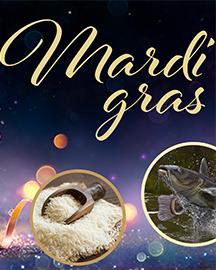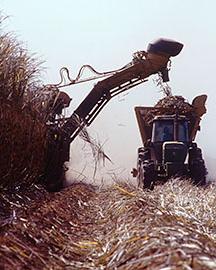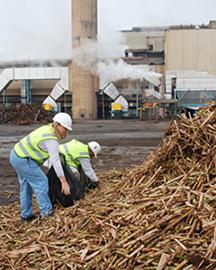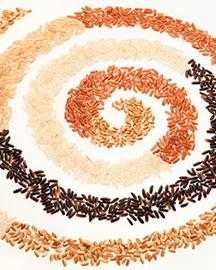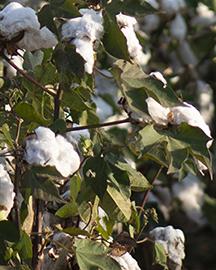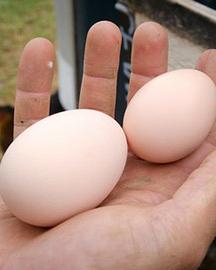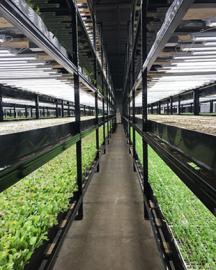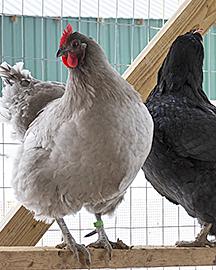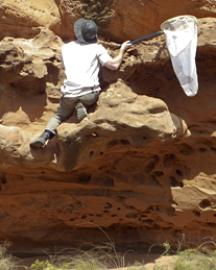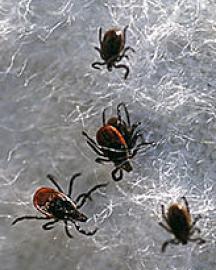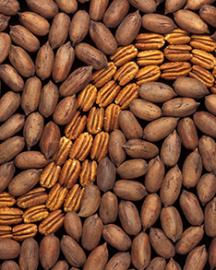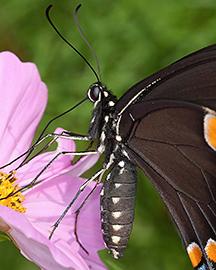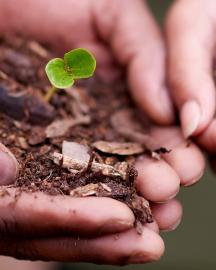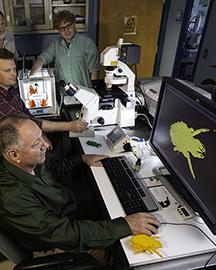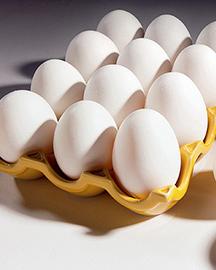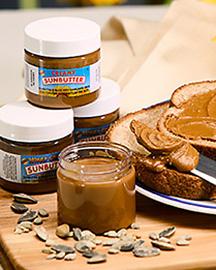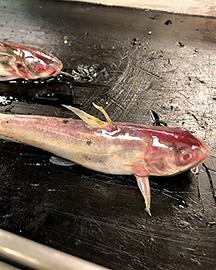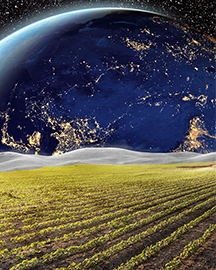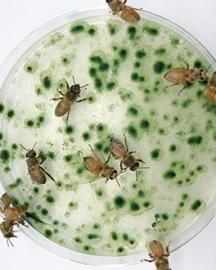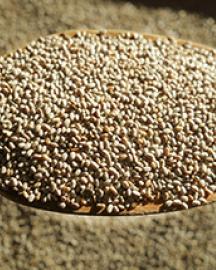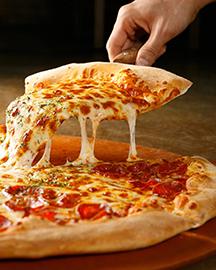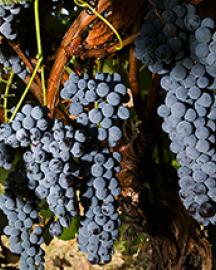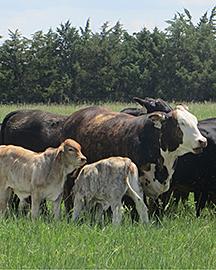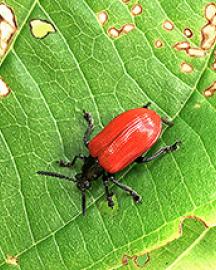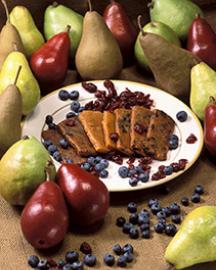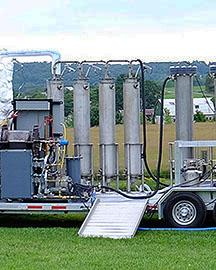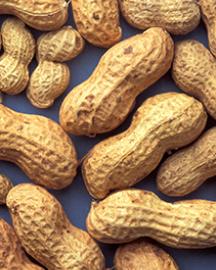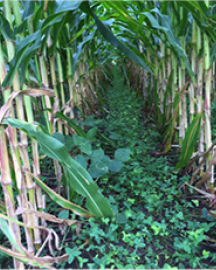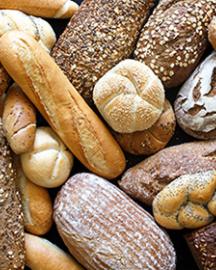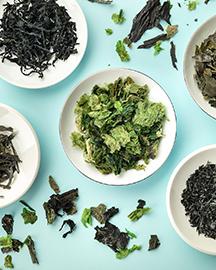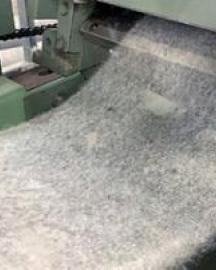ARS researchers in Mayaguez, PR, are studying ways to protect cacao from harmful viruses and diseases.
A team of ARS researchers is providing farmers in Hawaii with new apps to help manage threats to their crops.
Careers for new scientists span a variety of disciplines in agriculture. Want to know more? Check out this page.
Huanglongbing, also known as citrus greening, poses the most serious threat that the Florida citrus industry has ever faced.
Cooking with Science Episode 3: learn about research ARS is doing to improve strawberries, watch a cooking video and get recipes.
The Agricultural Research Service is helping ensure that native plants with cultural, historical, medicinal, and edible significance remain available for future generations.
A new biobased kitty litter developed by ARS scientists could be coming to a box near you—your cat's, that is.
Cooking with Science Episode 2: learn about ARS potato research, watch a cooking video and get recipes.
ARS scientists are hard at work identifying new plant oils and new uses for existing ones, both in and outside the kitchen.
Popular folk remedy witch hazel is an effective and natural alternative to conventional antibiotics.
One approach to eliminating plastic packaging is to use plant-based fiber to create products that are environmentally harmless but provide similar results to plastic.
ARS scientists are analyzing spinach varieties to identify varieties that have low oxalate levels, which is sometimes linked to better health.
A new process converts organic waste into nanocellulose, a brown, fibrous material that can be used in multiple products from cardboard boxes to food packaging.
ARS scientists are looking to turn the tables on mosquitoes and other insect pests like house flies by making them into lunch for other animals.
The Chesapeake Bay is the largest and most productive estuary in the United States and third largest in the world.
The United States began honoring women’s history in 1980, but ARS has a long tradition of celebrating the role of women in science.
It's Mardi Gras season and we’re excited to feature some of the great research happening at the ARS Southern Regional Research Center in New Orleans, LA!
ARS scientists use genetics to keep the Louisiana sugar industry vital.
Scientists are turning that waste into products that can refresh the soil. Two examples involve mill mud and bagasse.
Rice, already the primary staple for half the world's population, is getting a makeover from a research team in New Orleans, LA. The results are a more healthful grain and many potential new products.
Researchers may boost the cotton nonwoven industry and clean the environment.
The ARS Egg Safety and Quality Research Unit conducts research to protect both the health of consumers and the marketability of eggs.
Vertical farming, the practice of growing crops in vertically stacked layers, allows farmers to grow fresh produce indoors year-round.
Raising healthy chickens requires planning, attention to detail, and fastidiousness when it comes to completing daily chores.
A restless plant that thrives in several cemeteries in Mississippi could be linked to a royal Gypsy family.
ARS researchers discovered a fuzzy gray bee that carves its nest into chunks of sandstone!
A pair of bald eagles and their eaglet live in a tree at the U.S. National Arboretum in Washington, D.C.
ARS researchers undertook a five-year study to improve control of the ticks that spread Lyme disease.
Scientists at the ARS Fruit and Tree Nut Research Station have developed a new way to protect pecans from diseases.
Composting is an excellent way to reduce waste that’s sent to landfills while providing soil in your gardens or fields with precious nutrients.
Learn how ARS scientists are working hard to fight this pest and protect our beloved ash trees.
The ARS Electron and Confocal Microscopy Unit is equipped with state-of-the-art microscopes capable of producing high-resolution, digital images.
ARS keeps the pep in peppers. Cooking with Science Episode 1: Learn about ARS research to develop superior peppers, watch a cooking video and get recipes.
Should you store eggs in the refrigerator or let them sit out in the kitchen at room temperature?
Did you know that ARS scientists developed a tasty, nutrient-rich peanut butter alternative made from sunflower seeds?
Aeromonas hydrophila has ravaged the catfish farming industry in Alabama and other states since its discovery in 2009.
ARS scientists are working with NASA to develop sustainable farming techniques and technologies to grow fresh produce while in spaceflight.
Microalgae could provide a strong, sustainably produced artificial diet for honeybees.
What you eat at certain stages of life may determine your future health.
ARS entomologist Tracey Leskey, who talks about stink bugs, ants, box elder bugs and other insects.
ARS researchers are evaluating ways to use gluten-free alternatives, like amaranth, in popular products like cookies and pasta.
Great pizza needs great ingredients! Did you know that two of those were developed by ARS?
Learn about photosynthesis and how plants use it to feed the planet.
ARS has bred "seedless" grape varieties with seeds so tiny that you can't even detect them.
A team of ARS researchers is developing a web-based tool that will help cattle producers select the best bull for their herds.
The air potato vine introduced 115 years ago from Asia has multiplied and smothered native plant communities in all of Florida’s 67 counties.
ARS researchers helped formulate a tasty fruit-based bar with health-promoting ingredients.
Scientists are turning potentially wasted fruits and veggies into tasty, healthful products for you to enjoy.
ARS scientists are helping farmers and ranchers convert farm and ranch leftovers and waste to sources of bioenergy (oil and gas), and high-value by-products.
ARS scientists have come up with a very promising for peanut allergy treatment.
A team of USDA scientists is working on a double-cropping system as a way to improve a farmer’s profit margin by growing cattle feed between rows of a cash crop, in this case corn or soybean.
ARS scientists found a way to make a valuable compound from bread waste.
Seaweed farming is the fastest growing sector of American aquaculture and ARS scientists can help farmers cash in.
Scientists are perfecting a technology to embed nanoparticles of silver – a known anti-microbial agent – inside of cotton fibers.



